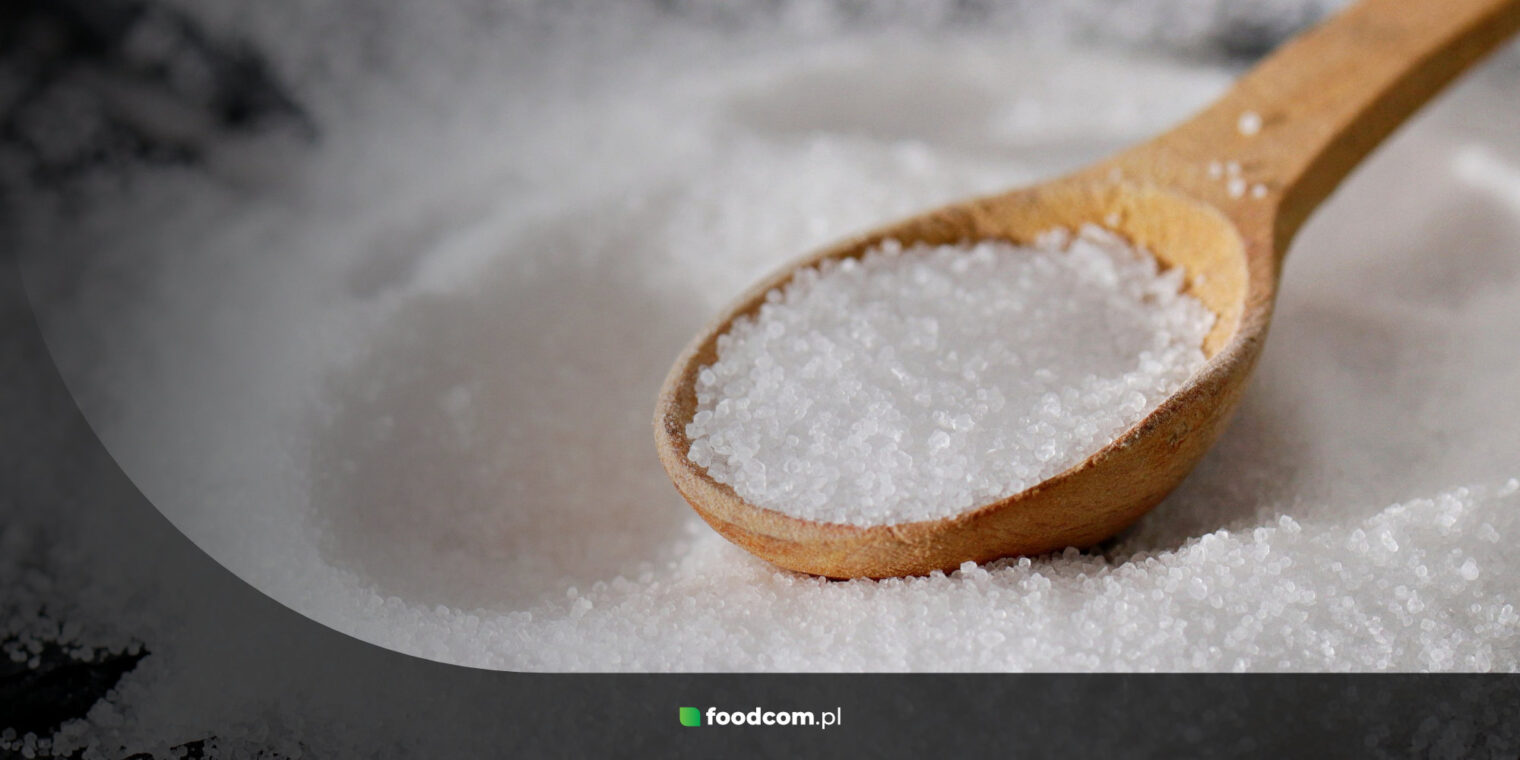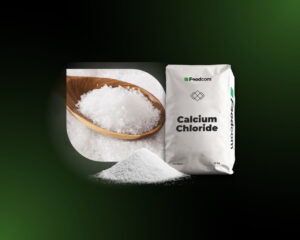Summary
Table of contents
Read our overview of calcium sulfate – a natural material finding use in various industries. Read about its production process and a range of properties applied in different sectors. Discover the leaders of international trade and see what are the market’s prospects.
Calcium sulfate is a natural mineral, most commonly occurring as gypsum. The product is available in a dihydrate form as a white powder or lumps or otherwise in an anhydrous form as white, crystalline powder or crystals. Generally, both forms are characterized by a very low solubility rate in water and other solvents.
Commercial calcium sulfate is obtained from naturally occurring gypsum that is extracted or mined. The material undergoes the process of separation and purification in high temperatures to remove other components. Additionally, calcium sulfate is a by-product of various processes including zinc refinement and the production of hydrogen fluoride or phosphoric acid from sulfuric acid.
Calcium sulfate offers a range of texture-altering properties in various industries. In food production, it is an approved food additive listed under the code E516. It is used as a thickener, stabilizer, desiccant, anti-binder, and chelating agent among others. Moreover, it regulates the pH to obtain the desired acidity of the final product and allows pH control during beer brewing. In the bakery sector, calcium sulfate is used to fortify the texture of bread, cookies, cakes, and confectionery items. It acts as an anticaking agent, preventing lumping and agglomeration. It also strengthens the dough by modifying starch, improves yeast leavening, enhances texture, and supports the structure of the product. In China, calcium sulfate has long been used as a thickening agent and coagulant in the production of tofu from soy milk to obtain a tender and brittle structure. Other benefits of calcium sulfate include reduction of sodium levels and extension of shelf life in canned vegetables, jarred jellies, frozen foods, and beverages.
In agriculture, the product is used as an ingredient of fertilizers and as a nutritional supplement to provide a higher calcium content in animal feed. Calcium sulfate is widely used in the construction industry as a building material for walls, stucco, blocks, panels, and mortars. In medicine, it is applied as a tablet excipient or component of plaster casts, and in dentistry as an impression material.
In 2020, the global production of gypsum was estimated at 150 million metric tonnes, a significant decrease from 261 million tonnes recorded in 2016. Since commercial calcium sulfate is primarily obtained from naturally occurring sources, the global leaders in production are the countries with the largest reserves. The United States holds the highest natural supply of gypsum in the world, estimated at 700 million metric tonnes. Therefore, the country also places as the main global producer of calcium sulfate, with around 20 million metric tonnes of gypsum from mines produced in 2020. Other key producers are China and Iran, with an estimated output of 16 million metric tonnes each in the same period. In the first half of 2021, the mined natural gypsum output in the U.S. declined by 3.8% on a year-to-year basis to 10.1 million tonnes. However, the production of calcined gypsum grew by 13% compared to the same period in the previous year amounting to 9.57 million tonnes.
In 2019, total global exports of gypsum reached the value of $1.29 billion, while total imports accounted for the same amount. Thailand was the key global exporter of gypsum with sales worth $196 million, followed by Germany accounting for $134 million worth of exports, and Spain with $120 million in deliveries. In the same year, the largest global buyer of gypsum was India with orders for $104 million, followed by the United States with imports for $98.5 million. Japan spent $78.1 million on gypsum orders while purchases placed by Indonesia and Belgium amounted to $63.3 million and $58.9 million respectively.
The global calcium sulfate market was valued at $9.15 billion in 2020 and is projected to grow at a CAGR of 4.3% within the next 6 years, reaching over $12.8 billion by 2026. China and Europe are the key markets together, owing around 45% of the market share. The Asia Pacific region is expected to note the highest regional growth in the next five years due to the large natural reserves and growing demand for food and beverage offers. The European market will likely see a fast-paced expansion as well owing to continuous infrastructural development and construction investments.
By application, the construction sector accounts for around 55% of the global calcium sulfate market and is expected to remain dominant within the next few years based on increasing demand for building materials and expanding infrastructures. However, the food industry is projected to note the highest growth rate owing to the development of the food additives sector. The pharmaceutical segment is also projected to grow at a significant rate due to the increasing demand for calcium sulfate in anti-aging creams and whitening skin products.
What is calcium sulfate?
Calcium sulfate is a natural mineral, most commonly occurring as gypsum. The product is available in a dihydrate form as a white powder or lumps or otherwise in an anhydrous form as white, crystalline powder or crystals. Generally, both forms are characterized by a very low solubility rate in water and other solvents.
Production
Commercial calcium sulfate is obtained from naturally occurring gypsum that is extracted or mined. The material undergoes the process of separation and purification in high temperatures to remove other components. Additionally, calcium sulfate is a by-product of various processes including zinc refinement and the production of hydrogen fluoride or phosphoric acid from sulfuric acid.
Application
Calcium sulfate offers a range of texture-altering properties in various industries. In food production, it is an approved food additive listed under the code E516. It is used as a thickener, stabilizer, desiccant, anti-binder, and chelating agent among others. Moreover, it regulates the pH to obtain the desired acidity of the final product and allows pH control during beer brewing. In the bakery sector, calcium sulfate is used to fortify the texture of bread, cookies, cakes, and confectionery items. It acts as an anticaking agent, preventing lumping and agglomeration. It also strengthens the dough by modifying starch, improves yeast leavening, enhances texture, and supports the structure of the product. In China, calcium sulfate has long been used as a thickening agent and coagulant in the production of tofu from soy milk to obtain a tender and brittle structure. Other benefits of calcium sulfate include reduction of sodium levels and extension of shelf life in canned vegetables, jarred jellies, frozen foods, and beverages.
In agriculture, the product is used as an ingredient of fertilizers and as a nutritional supplement to provide a higher calcium content in animal feed. Calcium sulfate is widely used in the construction industry as a building material for walls, stucco, blocks, panels, and mortars. In medicine, it is applied as a tablet excipient or component of plaster casts, and in dentistry as an impression material.
International trade
In 2020, the global production of gypsum was estimated at 150 million metric tonnes, a significant decrease from 261 million tonnes recorded in 2016. Since commercial calcium sulfate is primarily obtained from naturally occurring sources, the global leaders in production are the countries with the largest reserves. The United States holds the highest natural supply of gypsum in the world, estimated at 700 million metric tonnes. Therefore, the country also places as the main global producer of calcium sulfate, with around 20 million metric tonnes of gypsum from mines produced in 2020. Other key producers are China and Iran, with an estimated output of 16 million metric tonnes each in the same period. In the first half of 2021, the mined natural gypsum output in the U.S. declined by 3.8% on a year-to-year basis to 10.1 million tonnes. However, the production of calcined gypsum grew by 13% compared to the same period in the previous year amounting to 9.57 million tonnes.
In 2019, total global exports of gypsum reached the value of $1.29 billion, while total imports accounted for the same amount. Thailand was the key global exporter of gypsum with sales worth $196 million, followed by Germany accounting for $134 million worth of exports, and Spain with $120 million in deliveries. In the same year, the largest global buyer of gypsum was India with orders for $104 million, followed by the United States with imports for $98.5 million. Japan spent $78.1 million on gypsum orders while purchases placed by Indonesia and Belgium amounted to $63.3 million and $58.9 million respectively.
Market outlook
The global calcium sulfate market was valued at $9.15 billion in 2020 and is projected to grow at a CAGR of 4.3% within the next 6 years, reaching over $12.8 billion by 2026. China and Europe are the key markets together, owing around 45% of the market share. The Asia Pacific region is expected to note the highest regional growth in the next five years due to the large natural reserves and growing demand for food and beverage offers. The European market will likely see a fast-paced expansion as well owing to continuous infrastructural development and construction investments.
By application, the construction sector accounts for around 55% of the global calcium sulfate market and is expected to remain dominant within the next few years based on increasing demand for building materials and expanding infrastructures. However, the food industry is projected to note the highest growth rate owing to the development of the food additives sector. The pharmaceutical segment is also projected to grow at a significant rate due to the increasing demand for calcium sulfate in anti-aging creams and whitening skin products.




![Walnuts, Pistachios and Raisins – rising prices due to global disruption [70th Edition of PLANT-BASED Newsletter] Walnuts, Pistachios and Raisins – rising prices due to global disruption [70th Edition of PLANT-BASED Newsletter]](https://foodcom.pl/wp-content/uploads/2023/08/Foodcom_SA_Newsletter_Plant-Based-600x300.jpg)




